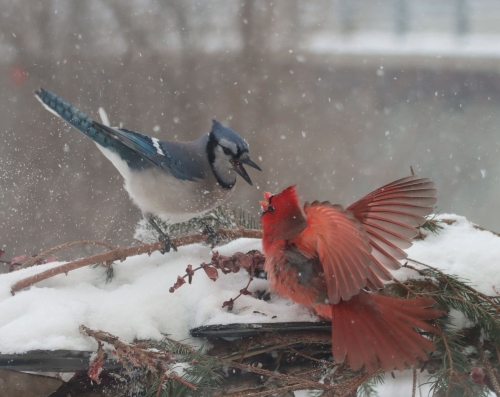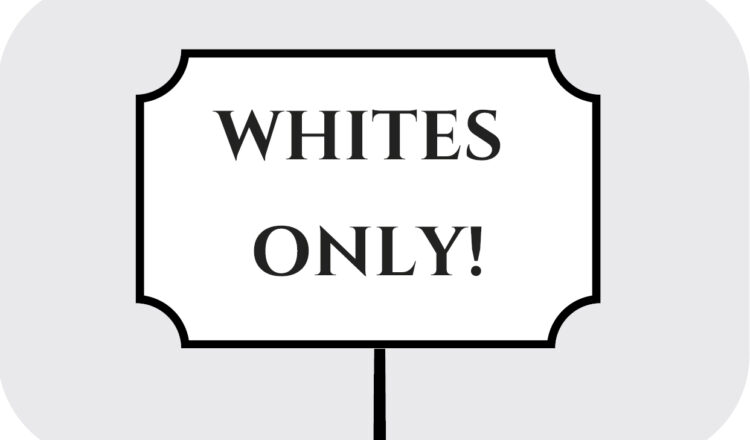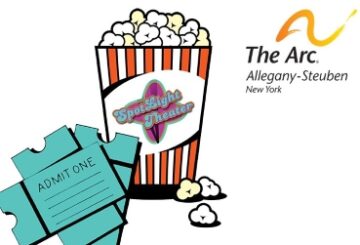“Return to the Land” seeks to establish a “racially exclusive” community
By: Johanna Elattar
A toxic ideology from America’s past is making an alarming resurgence. “Return to the Land” (RTTL), a far-right group hell-bent on establishing a whites-only community, has set its sights on Springfield, Missouri. Their plans to create a “racially exclusive” enclave aren’t just about carving out space for their views; they aim to normalize division, hatred, and separation in a country that’s fought too hard to overcome its history of racial injustice.
This isn’t merely a local issue—it’s a battle for the very soul of America. The rise of RTTL serves as a disturbing reminder that some ideologies never truly fade. We must now ask ourselves: Where do we draw the line?
The Return to the Land movement, led by Eric Orwoll, has one goal: to create self-sustaining, racially homogeneous communities across the United States. Born from extremist beliefs, RTTL’s agenda promotes retreating from “multiculturalism” and “globalism”—but what they really mean is closing the door on people of color and allowing bigotry to thrive.
Already gaining traction in northern Arkansas, RTTL’s push to expand into Springfield presents a dangerous and sobering reality. This isn’t just an outdated fantasy—it’s an active attempt to bring segregation and racial violence back into the mainstream.
The Roots of Resurgence: Why Is This Happening Again?
The resurgence of groups like RTTL isn’t an isolated incident—it’s a symptom of deeper societal issues that have allowed these ideologies to take root once again. The dangerous comeback of groups like RTTL is driven by several key factors:
- The Politics of Fear and Division
In today’s political landscape, fear of “the other” is weaponized by those in power. Politicians and public figures stoke anxieties about immigration, multiculturalism, and racial change, creating an “us versus them” mentality. This type of rhetoric fosters division and normalizes extremist ideologies. By framing diversity as a threat, groups like RTTL are exploiting these fears to justify their call for segregation and hate. - Social Media and Echo Chambers
In the digital age, social media has become a breeding ground for extremist views. Algorithms prioritize engagement over quality, amplifying divisive and radical content. Groups like RTTL capitalize on these platforms to recruit, organize, and turn online rhetoric into real-world actions. With the ease of access to hate-filled propaganda, these ideas spread faster than ever before. - Economic Desperation and Social Struggles
Economic inequality has deepened social division. People struggling with financial hardship are often most vulnerable to extremist ideologies offering simple solutions. Groups like RTTL falsely blame racial and ethnic minorities for the country’s economic woes, providing a scapegoat when the real causes are more complex. This tactic plays on frustration, anger, and feelings of powerlessness, pulling people into a cycle of hate. - Normalization of Hate
The normalization of hate speech is one of the most dangerous aspects of this resurgence. Disguised as free speech, racist and exclusionary views are gaining traction with little opposition. RTTL cloaks bigotry as patriotism, making it easier for people to justify their hateful beliefs. The line between legitimate political discourse and hate becomes blurred, allowing dangerous ideologies like RTTL’s to slip into mainstream conversations. - A Failure to Reckon with History
A key factor in the revival of these ideologies is America’s failure to fully reckon with its past injustices. The racial violence that occurred in Springfield in 1906—the lynching of two Black men and the mass expulsion of Black residents—continues to echo through the community today. When a town refuses to confront its history, or when that history is forgotten or downplayed, it creates space for hatred to reemerge. The lack of historical education and awareness leaves the door open for movements like RTTL’s to take hold once more.
Springfield’s Legacy of Racial Division
Springfield’s history of racial violence is one we cannot afford to ignore. In 1906, the city was the site of a horrific race riot, resulting in the lynching of two Black men and the mass expulsion of Black residents. The trauma from this event created a deeply ingrained atmosphere of racial division that persisted for decades.
The NAACP was founded in Springfield as a direct response to this violence, and while the city has made efforts to confront its painful past, racism remains embedded in the region’s social fabric.
In 2024, another racially charged tragedy struck the city when Sonya Massey, a Black woman, was shot and killed by police after a 911 call. This incident underscored the ongoing racial injustice in Springfield, making RTTL’s proposed community all the more dangerous and relevant.
To allow RTTL to settle in Springfield would be a direct slap in the face to the people who have fought for justice over the last century. It’s not just an insult to Springfield’s Black community—it’s an insult to everyone who believes in the values of equality, justice, and unity.
Activists, Springfield’s Black community, and national organizations like the NAACP are already pushing back. They’re calling this movement exactly what it is: un-American. RTTL isn’t just a threat to Springfield—it’s a threat to the future of America. The rhetoric RTTL promotes is straight from the darkest parts of American history, and it’s our responsibility to stop it now.
While Springfield is the immediate battleground, RTTL’s plans have broader implications. If a group like RTTL can take root in Springfield, what’s stopping them from spreading across the country? This isn’t a small-town issue—it’s a direct challenge to the progressive vision of a more inclusive America.
RTTL’s vision for America is a direct attack on the values that have made this country a beacon of hope. Our nation was founded on the belief that diversity is a strength—not a threat. RTTL is trying to tear this ideal down, and we cannot let them succeed.
We cannot afford to stand by. We must rise up against this dangerous ideology. If you’re in Springfield, or anywhere else, here’s how you can help:
- Stand Up and Speak Out: Raise your voice against racial division. Write, post, speak—make it clear that segregationist ideologies are not welcome here.
- Support Civil Rights Groups: Organizations like the NAACP are leading the charge. Your support—whether financial, moral, or vocal—can make a real difference.
- Engage Locally: Attend rallies, protests, and town halls. Support efforts that seek to keep Springfield a welcoming community for all people.
- Educate Yourself and Others: The more we understand the dangers of far-right movements, the better equipped we’ll be to fight them.
Do we stand for the ideals of justice, equality, and unity, or do we let fear and hate dictate our future? Springfield’s fight is America’s fight. This is more than just about a “whites-only” community—it’s about whether we allow hatred and division to govern our society. We can’t afford to let that happen.
It’s time to rise above division and stand for what’s right. This isn’t just a fight for Springfield; it’s a fight for America’s future.
Johanna Elattar is an Arab and Muslim journalist, essayist, and academic whose investigative and human rights work was recently selected for inclusion in the Oxford University Press textbook Race and Racisms (4th Edition)—without submission. She writes unapologetically about marginalized communities, censorship, and the quiet violence of being silenced. For interviews, collaborations, or op-ed requests: Americangrrl70@gmail.com






